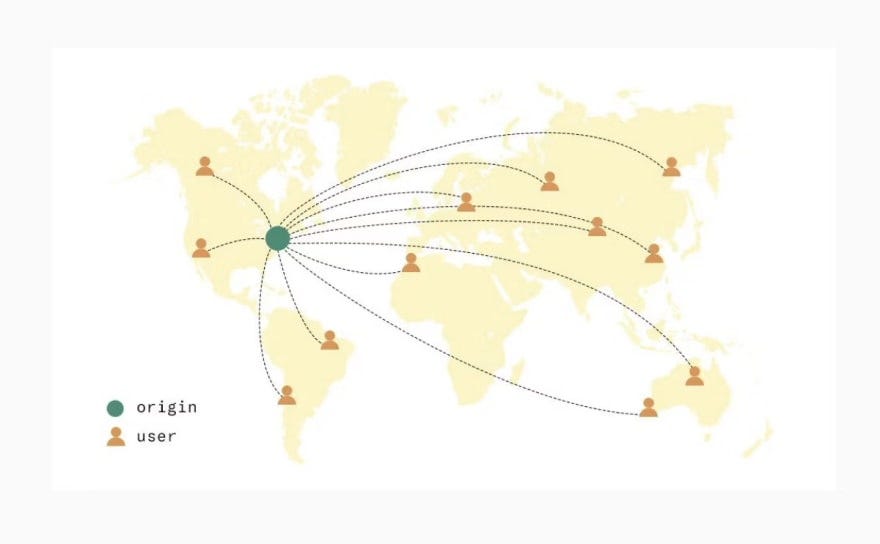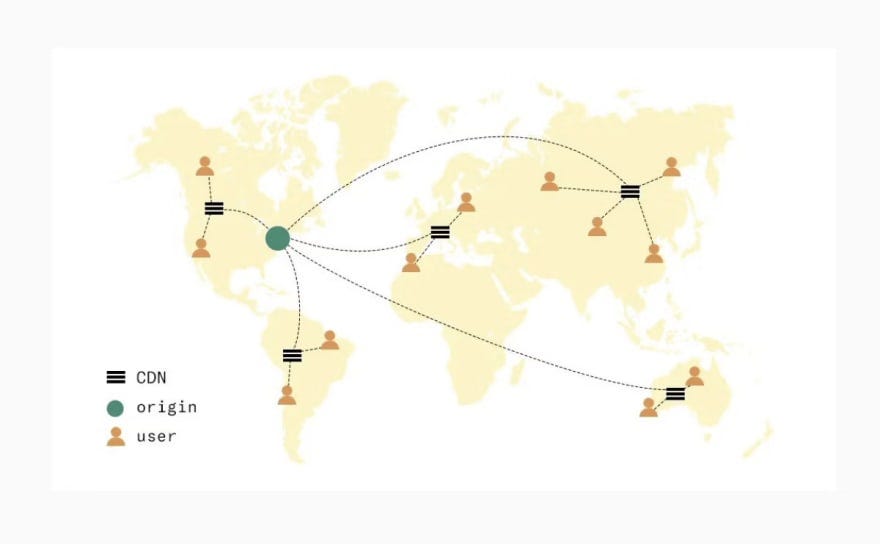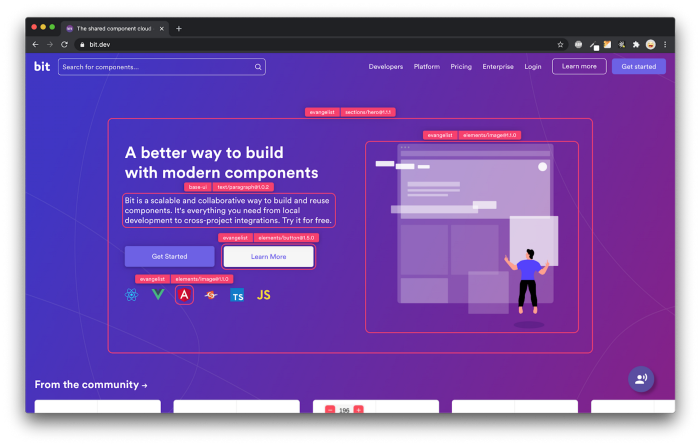This content originally appeared on Bits and Pieces - Medium and was authored by Edgaras Stepanovas
A deep dive into CDN — exploring its benefits and why you should use it for your websites or online applications.
What is Content Delivery Network (CDN)
It’s a system of servers that are located in various locations around the globe, and they are used to deliver content to users based on their geographic location. CDN is designed to improve the performance and availability of websites and other online applications by reducing the distance between the content and the end user. In this post, I’ll explain more about CDN and why you might want to consider using it for your website or online application. I’ll also talk about some of the different CDN providers that are available and how CDN can benefit your business.
How CDN works?
Essentially, CDN stores a copy of your website’s content on a network of servers located in various locations around the world. When a user accesses your website, the CDN will deliver the content from the server that is closest to the user, which can significantly reduce the time it takes for the webpage to load. This can lead to a better user experience and higher levels of customer satisfaction. CDN can also help reduce the load on your origin server, which can improve the overall performance and stability of your website.
Standard website model example (without CDN)

Using CDN example

In the example above, CDN stores a copy of your website’s content on a network of servers located in various locations around the world. When a user accesses your website, the CDN will deliver the content from the server that is closest to the user.
Benefits of using CDN
Improved website performance
CDN servers are located in various locations around the world, so when a user accesses a website that is using a CDN, they will be served content from the server that is geographically closest to them. This can significantly reduce the load time of the website, as the data does not have to travel as far.
Reduced server load
By offloading the delivery of static content (such as images, CSS, and JavaScript files) to a CDN, the origin server is relieved of the burden of serving this content, allowing it to focus on more important tasks such as dynamic content generation and processing.
Enhanced security
CDN providers often offer additional security measures such as DDoS protection and SSL/TLS encryption, which can help to protect a website from cyber attacks and ensure that sensitive data is transmitted securely.
Improved availability
CDN servers are distributed across multiple locations, so if one server goes down, another can take over and serve the content. This helps to ensure that a website remains available and accessible even in the event of a server outage.
Greater scalability
CDN networks have the capacity to handle large spikes in traffic, making them well-suited for websites that experience periodic traffic surges (such as during a product launch or a viral marketing campaign). This can help to prevent the website from crashing or becoming unavailable due to high traffic levels.
An example of JavaScript syntax that uses a CDN
<script src="https://cdn.jsdelivr.net/npm/lodash@4.17.20/lodash.min.js"></script>
<script>
// Use lodash library
var result = _.map([1, 2, 3], function(n) {
return n * 3;
});
console.log(result); // Output: [3, 6, 9]
</script>
In this example, the <script> tag is used to include the lodash library from the jsDelivr CDN. The library can then be used within the script by calling the _.map() function. This is a convenient way to include a library or framework in a website without having to host it on the server.
Providers
There are many CDN providers to choose from, each with their own unique features and pricing plans. Some popular CDN providers include Akamai, Cloudflare, and Fastly. It’s important to carefully evaluate the different options and choose the CDN provider that best meets your specific needs and budget.
Conclusion
It’s important to understand that CDN is not a replacement for a well-designed and optimized website. CDN can help improve the performance of an already optimized website, but it will not fix underlying issues with website design or code. It’s also important to choose the right CDN provider for your business and to keep in mind that CDN is just one part of a larger web performance strategy.
💡 To minimize code-related issues that CDN can’t help with, it’s important to implement a proper design system that is composable and scalable. This approach is made easier with a tool like Bit which allows your teams to independently publish, version, document, test, and share individual components such as functions, UI elements, or data models, that can be reused across your project. This greatly reduces code-duplication and makes your codebase more maintainable and error-free.
Learn more here:
Creating a Developer Website with Bit components
I hope this post has helped you understand more about CDN and how it can benefit your business. If you have any questions or want to learn more, don’t hesitate to reach out or comment!
Build Apps with reusable components, just like Lego

Bit’s open-source tool help 250,000+ devs to build apps with components.
Turn any UI, feature, or page into a reusable component — and share it across your applications. It’s easier to collaborate and build faster.
Split apps into components to make app development easier, and enjoy the best experience for the workflows you want:
→ Micro-Frontends
→ Design System
→ Code-Sharing and reuse
→ Monorepo
Learn more:
- How We Build Micro Frontends
- How we Build a Component Design System
- How to reuse React components across your projects
- 5 Ways to Build a React Monorepo
- How to Create a Composable React App with Bit
What is CDN and Why Should You Use It? was originally published in Bits and Pieces on Medium, where people are continuing the conversation by highlighting and responding to this story.
This content originally appeared on Bits and Pieces - Medium and was authored by Edgaras Stepanovas
Edgaras Stepanovas | Sciencx (2023-03-27T11:20:03+00:00) What is CDN and Why Should You Use It?. Retrieved from https://www.scien.cx/2023/03/27/what-is-cdn-and-why-should-you-use-it/
Please log in to upload a file.
There are no updates yet.
Click the Upload button above to add an update.
